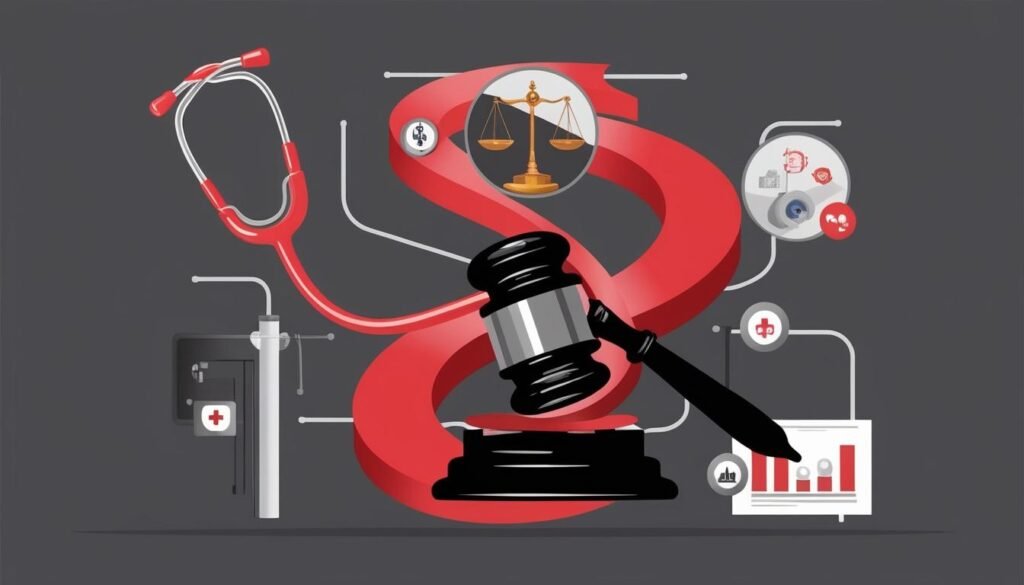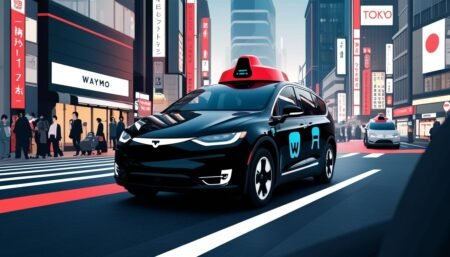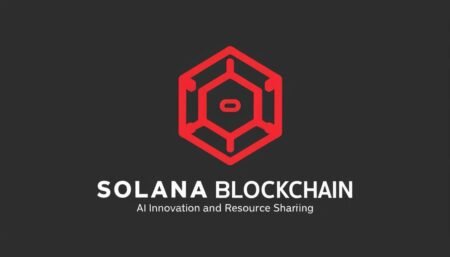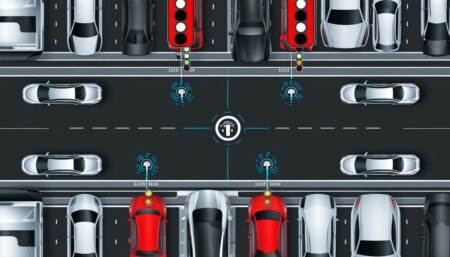Artificial intelligence is revolutionising multiple sectors, enhancing productivity and efficiency while presenting new ethical challenges.
Artificial intelligence (AI) is fundamentally transforming various industries, reshaping traditional operations and enabling innovative solutions. Reports indicate that sectors such as healthcare, legal, aerospace, and consumer services are increasingly adopting AI technologies, demonstrating remarkable applications that enhance efficiency, accuracy, and overall productivity.
In the healthcare industry, rapid advancements in AI are set to redefine care delivery. The AI in healthcare market is projected to reach multi-billion-dollar valuations in the coming years, driven by an aging population and the rising prevalence of chronic diseases. North America is at the forefront, backing significant investments and advanced infrastructures, while Asia-Pacific is emerging as a key player. AI-powered algorithms are revolutionising diagnostics by analysing imaging data from CT scans and MRIs with high levels of accuracy, enabling earlier detection of diseases such as cancer and cardiovascular conditions. Predictive analytics further enhance patient care by forecasting disease progression, allowing healthcare professionals to intervene timely with tailored treatment plans.
AI is also transforming legal practices, with numerous start-ups leveraging technology to automate mundane, repetitive tasks. Notable firms like Harvey and EvenUp are developing AI systems that streamline tasks such as contract drafting and legal research. These innovations are not only reducing the time spent on low-value work but enhancing the quality of deliverables, enabling lawyers to focus on more strategic matters. However, challenges remain, particularly concerning the need for precision in legal contexts, where the costs of errors are exceptionally high.
In aerospace, AI is integral to operational advancements and autonomy. SpaceX has incorporated AI into its rocket designs to optimise trajectories and analyse data in real-time, drastically lowering the cost of access to space. The Space Development Agency is deploying AI for managing complex satellite constellations, thereby enhancing military applications. The introduction of sensor fusion technology, exemplified by Anduril Industries’ Lattice system, allows data from various sensors to be consolidated, significantly improving situational awareness in defence.
The consumer sector has witnessed the pervasive adoption of AI to enrich customer experiences. Companies like Netflix and Amazon utilise predictive algorithms to tailor recommendations to users, turning casual consumers into loyal users. However, the rapid integration of AI tools requires careful attention to ethical considerations, particularly regarding user privacy and bias in AI systems. Leaders in the sector are increasingly recognising the need for solutions that both enhance user experience and maintain ethical standards.
Within all these advancements, several overarching challenges persist. A fundamental concern involves mitigating biases in AI systems, which can lead to inequalities in key sectors such as legal and healthcare. The potential for “hallucinations”—instances where AI produces inaccurate information—is particularly critical in legal work and defence, where the repercussions of misinformation can be severe. Consequently, building trust in AI systems remains paramount.
Looking ahead, the melding of AI technologies across industries presents opportunities for further innovation. The sharing of insights and technologies has fostered a collaborative environment that cuts across traditional industry barriers. For instance, advancements in predictive maintenance for aerospace are now influencing manufacturing and logistics sectors. In healthcare, personalised medicine driven by AI data analytics is enhancing patient outcomes and shifting the approach to treatment.
As industries continue to navigate the complexities of AI adoption, the role of responsible leadership will be crucial in steering the integration of these technologies. Future progress will depend on balancing innovation with ethical considerations, ensuring that AI serves to augment, rather than replace, the human element. The collaborative effort among tech firms, regulatory bodies, and industry leaders will be key to unlocking AI’s full potential, contributing to improved systems across all sectors.
Source: Noah Wire Services
- https://blogs.microsoft.com/blog/2024/11/12/idcs-2024-ai-opportunity-study-top-five-ai-trends-to-watch/ – Corroborates the rapid adoption and impact of AI in various industries, including healthcare, and highlights the ROI and efficiency gains from AI investments.
- https://www.grandviewresearch.com/industry-analysis/artificial-intelligence-ai-healthcare-market – Supports the projection of the AI in healthcare market reaching multi-billion-dollar valuations and the role of AI in enhancing diagnostics and patient care.
- https://www.marketsandmarkets.com/Market-Reports/artificial-intelligence-healthcare-market-54679303.html – Provides statistics on the growth of the AI in healthcare market, driven by factors such as an aging population and the need for improved healthcare services.
- https://blogs.microsoft.com/blog/2024/11/12/idcs-2024-ai-opportunity-study-top-five-ai-trends-to-watch/ – Details the use of AI in predictive analytics for healthcare, enabling earlier disease detection and tailored treatment plans.
- https://www.digitalocean.com/resources/articles/artificial-intelligence-statistics – Highlights the increasing adoption of AI across various business functions, including legal and consumer services, and the significant investments in AI technologies.
- https://www.grandviewresearch.com/industry-analysis/artificial-intelligence-ai-healthcare-market – Mentions the use of AI-powered algorithms in analysing imaging data from CT scans and MRIs, enhancing diagnostic accuracy in healthcare.
- https://www.marketsandmarkets.com/Market-Reports/artificial-intelligence-healthcare-market-54679303.html – Discusses the role of AI in predictive analytics for forecasting disease progression and enabling timely interventions in healthcare.
- https://www.digitalocean.com/resources/articles/artificial-intelligence-statistics – Provides context on the widespread adoption of AI in consumer services, such as Netflix and Amazon, to enhance user experiences through predictive algorithms.
- https://blogs.microsoft.com/blog/2024/11/12/idcs-2024-ai-opportunity-study-top-five-ai-trends-to-watch/ – Addresses the challenges of mitigating biases in AI systems and the importance of building trust in AI, particularly in critical sectors like legal and healthcare.
- https://www.grandviewresearch.com/industry-analysis/artificial-intelligence-ai-healthcare-market – Highlights the collaborative environment and the sharing of insights across industries, such as the influence of aerospace advancements on manufacturing and logistics.
- https://www.marketsandmarkets.com/Market-Reports/artificial-intelligence-healthcare-market-54679303.html – Emphasizes the need for responsible leadership and the balance between innovation and ethical considerations in AI adoption across various sectors.
- https://news.google.com/rss/articles/CBMixgFBVV95cUxPQmgtaHZOenBXbUppZDR5a0VUWjdhclBzQ0JnZ1U2MW5PcEpBdElIYWN6Z3MwYWp6QURueDV2WTlXck5MY25wRlFTQXRFSGRaX2tFVmktb0FOR1M5c25ZajlmSjBDNDE3NE5sakllOExJc3g1X1FWZGkxSkw4ZkV2Y1ZOZGJmaVFMRkN1YjB5RUR5N1RyaDlzcWNGYm1BbE94d3JSUWtOcWdPdV9GWk1jczZWSmpNMjc1QVZZUzZPd1NTNHcwQWc?oc=5&hl=en-US&gl=US&ceid=US:en – Please view link – unable to able to access data
















